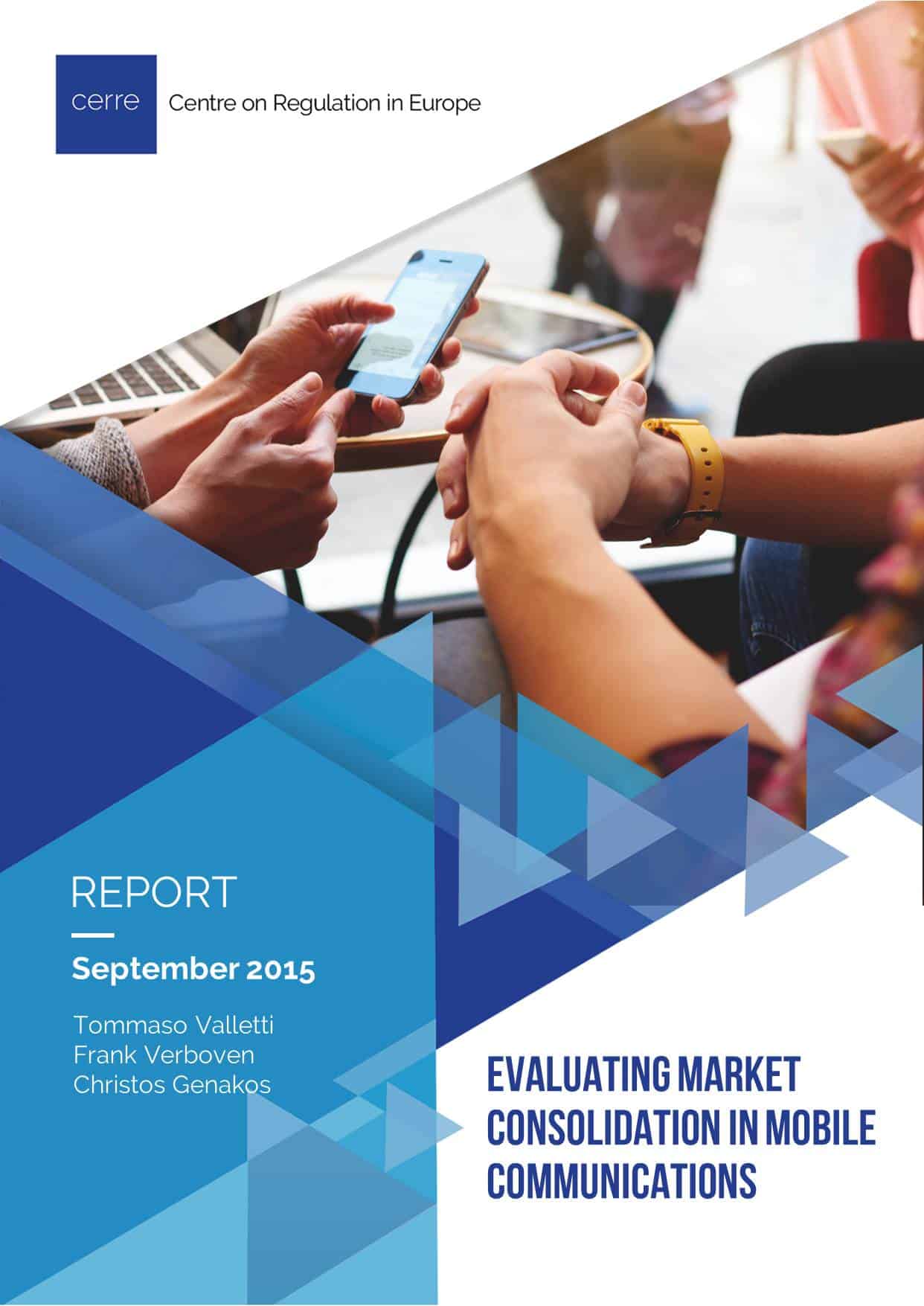
An increase in market concentration in the mobile communications industry generates a true economic trade-off. This is an important finding of this original report. While prices of mobile services have been constantly declining over the last decade, the study considers possible differences between more and less concentrated markets. Compared to markets in which there were no major changes in concentration, the study shows that mergers lead to significant growth in investment per operator while prices also increase, though at a lower rate.
For example, an average hypothetical 4-to-3 symmetric merger increases the bill for consumers by 16.3%, while at the same time capital expenditure goes up by 19.3% at the operator level. More realistic, recent asymmetric 4-to-3 mergers between smaller firms in European countries increase, according to the CERRE report, the bill by about 4-7%, while capital expenditure per operator grows by 7.5-14%.
This CERRE report analyses the dual impact of market structure on prices and investments and it demonstrates the relevance of that impact, both from an economic and a statistical point of view. It is based on an empirical study which has gathered detailed information related to the experience of individual mobile network operators from 33 OECD countries in the period 2002-2014. This is the largest dataset employed to-date for works of this kind. It provides relevant and comparable information at the operator level, between countries and over time.
CERRE’s Director General, Bruno Liebhaberg, comments:
“European merger policy has often maintained a de facto primacy of low prices over dynamic benefits in the form of more investments. As shown in recent examples, this has inhibited investment at a time when the Digital Single Market constitutes a policy priority in Europe. With their pioneering report based on a robust methodology and analysis, Valletti, Verboven and Genakos highlight the fundamental trade-off which needs to be properly addressed by regulators when assessing consolidation cases in the mobile communications industry: a merger will have static price effects to the detriment of consumers but also dynamic benefits for consumers, as investments can enhance their demand for services. This new CERRE study should be seen as a contribution to the always complex task faced by competition authorities. As such, it constitutes a perfect illustration of the mission of CERRE, as our think tank is entering a new growth phase in its development.”
Tommaso Valletti is Professor of Economics at Imperial College Business School and at the University of Rome Tor Vergata. His research interests are in industrial economics, regulation, and telecommunications economics.
He is a member of the panel of academic advisors to OFCOM and held a similar position with the UK Competition Commission. He has also been Chief Economist of the European Commission’s DG Competition.
Tommaso Valletti holds a PhD in Economics from the London School of Economics.
Tommaso Valletti is Professor of Economics at Imperial College Business School and at the University of Rome Tor Vergata. His research interests are in industrial economics, regulation, and telecommunications economics.
He is a member of the panel of academic advisors to OFCOM and held a similar position with the UK Competition Commission. He has also been Chief Economist of the European Commission’s DG Competition.
Tommaso Valletti holds a PhD in Economics from the London School of Economics.
Subscribe to our newsletter for our latest updates
Avenue Louise, 475 (box 10)
1050 Brussels, Belgium
T.: +32 2 230 83 60
E-mail: info@cerre.eu

Avenue Louise, 475 (box 10)
B-1050 Brussels – Belgium
T.: +3222308360
E-mail: info@cerre.eu
BE 0824446055 RPM Bruxelles
This website uses cookies to ensure you get the best experience.